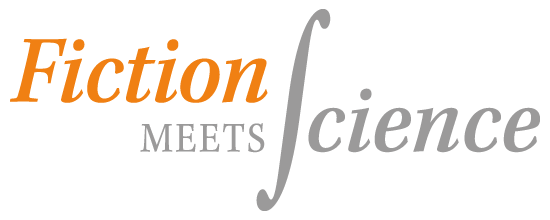4c. Emergent scientific discourses and power relations in science novels
A substantial number of
contemporary English and German novels in which science plays a major role
strongly support the view that fiction, whether set in the past or present,
provides an ideal space for examining two particular phenomena: First, the
diverse literary representations of the individual scientist's process of
discovery; and second, the way in which that fictionalized process is seen in
relation to the dominant discourse of the day, both within and beyond the
scientific community. The concept of representation is here used to distinguish
fictionalized versions of emergent scientific discourses from documentary
evidence of past or recent developments. The design of this project is just one
part of the proposal's interrelated rectangle whose corners are marked by the
authors and their scientific competence and cultural embeddedness, the
(historical) scientist as a fictionalized entity (cf. Shapin 1996), the
narrative mode which may involve reliable or unreliable mediation, and,
finally, the scientific (as well as historical) knowledge of the target
audience.
The fictional text corpus spans
the past four decades of publication and comprises a diverse mix of some forty
science novels in English and German. It includes fictional representations of
emergent scientific concepts and paradigm shifts from the 16th to the 20th
centuries, and ranges from John Banville's Doctor Copernicus (1976) and Kepler
(1982) to Clare Dudman's Wegener's Jigsaw (2003) and Jo Lendle's Alles
Land
(2011). In order to invite diachronic comparison the analytical focus then
shifts to novels such as Allegra Goodman's Intuition (2006) or Richard Powers's
Generosity. An Enhancement (2009), in which power relations and mechanisms
of
control influence the emergence of new scientific ideas in the contemporary
world. Within this wider comparative framework the following issues will be
addressed: the content and aim of the individual scientist's research in the
fictionalized space, the research environment or institutional embedding and
accessible modes of scientific communication, the interpretation of data
(Firestein 2012, 20), research fraud and scientific misconduct as in Bernhard
Kegel's recent novel Ein tiefer Fall (2012) (cf. Bell 1992 and Goodstein
2010),
academic integrity and scientific ethics, the significance of language (cf.
Krohn 2006) in the interplay of knowledge and power, the entitlement to do
specific research and attract recognition or third party funding (cf. Münch
2007), and the gender specific conditions of scientific agency (cf. Rosser
2004).
As a tool to analyse literary
representations of, for example, paradigm shifts, mechanisms of control, or
scientific misconduct, this project uses discourse analysis to investigate the
mode in which reality is perceived by the fictionalized scientist (cf. Mills
2003: 55). In keeping with this view, discourse is seen as having the potential
to both produce and control the characters’ perceptions of reality. In the
literary spaces of many science novels, discourse is further determined by the
interplay of the topics permitted for discussion, the circumstances under which
contributions are made, the normative modes utilized, and the allocation of the
right to speak as an agent of knowledge. Insofar as it results from a specific
constellation of power relations, which provide the context for processes of
negotiation, fictionalized scientific discourse and the rules of discursive
exclusion reflect the relationships between power, language, and knowledge
(cf. Fairclough 2010).
The project thus employs some of
the principles of discourse analysis to ex¬plore fictional spaces in which
processes of scientific discovery and knowledge production are affected by
various agencies of control, whether political, ideological, religious,
economic, scientific, or academic. The literary analysis is based on a model of
structural periodization that extends Foucault's notion of the discursive
break, Raymond Williams's concept of an interplay between dominant, residual,
and emergent beliefs and practices, and Thomas Kuhn's diachronic view of
science as proceeding in distinct phases (cf. Kuhn 1996), a concept that
has
found application in social system modelling (consensus formation, opinion
formation) and complex system analysis (cf. Bornholdt et al. 2011).
For the purpose of analysing
contemporary English and German fiction in which scientists are represented in
the process of formulating new discoveries, control is defined as any
political, ideological, religious, economic, scientific, academic, or
publishing agency that has the power to prohibit, inhibit, or pro¬mote the
production and emergence of knowledge. The success of the scientist figure as
discursive agent will depend on the employment of a post-Foucauldian version of
the triad of object, ritual, and privilege. Translated into the realm of
literary analysis, the leading questions for the project are the following: (1)
What is the content and aim of research in the given fictionalized space? (2)
In what environment or institutional framework is this research conducted, and
what modes of scientific communication are accessible? (3) Within the novels'
discursive texture, who has the right to do specific research and attract
public or academic recognition or third-party funding?
Michael Hagner sees
the history
of science as being closely related to cultural studies provided that the
latter employs a diachronic focus in relation to the historical dimension of
knowledge, its forms of representation, its basic categories and media, its
practice, as well as its cultural, social and economic interweaving (30).
Building on this approach the novels will also be read as literary
representations of the contingencies of scientific theory formation (Vanderbeke
2011: 196).
